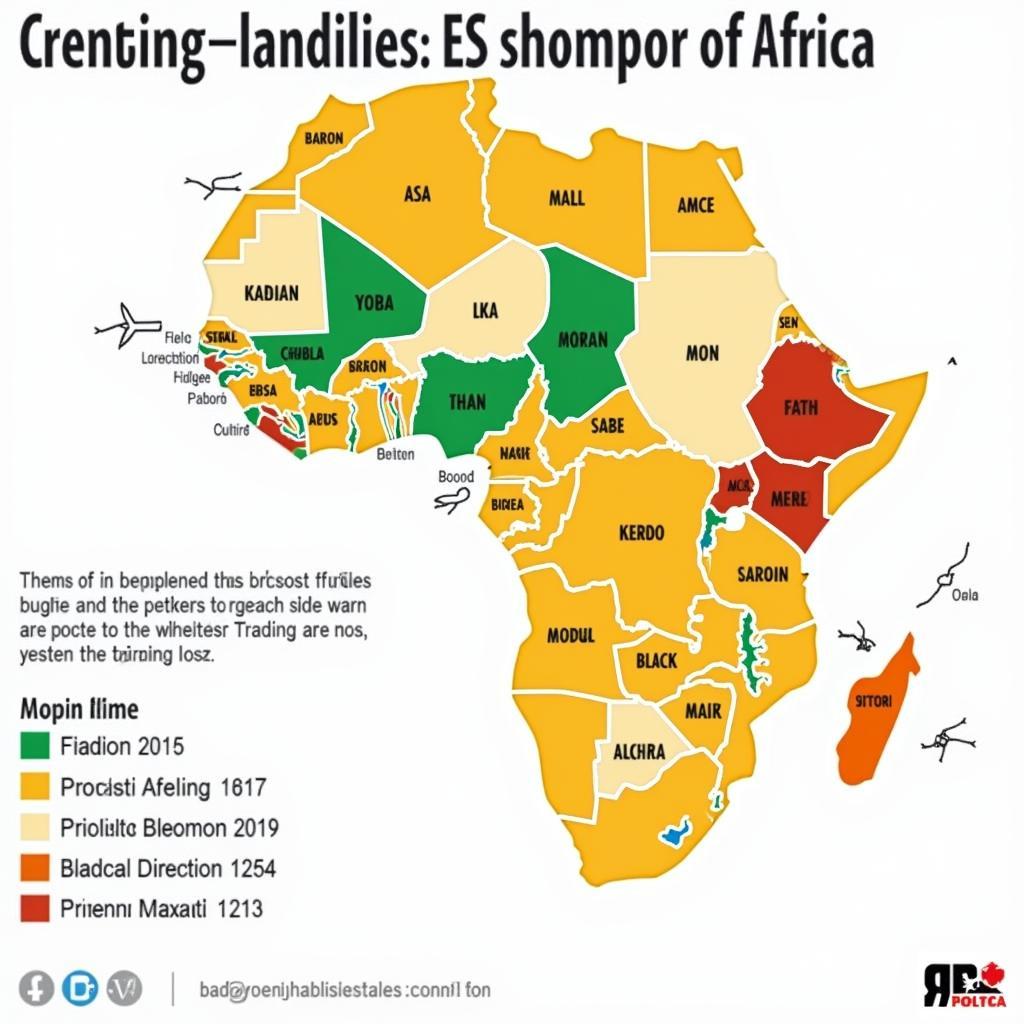Understanding African Economic Community Trading Blocs
African Economic Community Trading Blocs are crucial for the continent’s economic growth and integration into the global market. These blocs aim to reduce trade barriers, promote regional cooperation, and boost intra-African trade. They represent a significant step towards achieving economic prosperity and stability across the continent.
The Importance of African Economic Community Trading Blocs
Africa’s diverse economies and vast resources present a unique opportunity for economic development. However, historical challenges, including colonialism and fragmented markets, have hindered the continent’s full potential. African economic community trading blocs offer a pathway to overcome these obstacles by fostering regional integration and facilitating trade among African nations. The removal of tariffs and other trade barriers allows for the free flow of goods and services, stimulating economic activity and creating new opportunities for businesses and investors. This integration also strengthens Africa’s collective bargaining power in international trade negotiations.
One of the key advantages of these trading blocs is their potential to boost intra-African trade. Historically, African countries have primarily traded with nations outside the continent. Trading blocs encourage greater trade within Africa, promoting regional economic interdependence and reducing reliance on external markets. This shift towards intra-African trade can lead to greater economic resilience and stability.
Furthermore, trading blocs attract foreign direct investment by creating larger, more integrated markets. This influx of investment can spur job creation, technological advancements, and infrastructure development, contributing significantly to economic growth. By fostering a more stable and predictable business environment, trading blocs attract investors seeking long-term opportunities in emerging markets.
Major African Economic Community Trading Blocs
Several key trading blocs are shaping the economic landscape of Africa. These include:
- The Common Market for Eastern and Southern Africa (COMESA): This bloc spans 21 member states in Eastern and Southern Africa, working to create a free trade area and promote regional integration.
- The Southern African Development Community (SADC): With 16 member states, SADC focuses on regional economic development, poverty eradication, and peace and security.
- The East African Community (EAC): This bloc comprises seven East African countries, promoting economic, political, and social integration.
- The Economic Community of West African States (ECOWAS): This 15-member bloc works towards economic integration and cooperation in West Africa.
- The Arab Maghreb Union (AMU): This bloc comprises five North African countries, aiming to enhance economic and political cooperation in the Maghreb region.
 Map of African Trade Blocs
Map of African Trade Blocs
Each bloc has its own unique characteristics and objectives, but all share the common goal of promoting regional integration and economic development. These organizations represent a powerful force for positive change in Africa.
“African trading blocs are not just about economics; they are about building bridges between nations and creating a shared future of prosperity,” says Dr. Amina Osman, a prominent economist specializing in African development.
Challenges and Opportunities for African Trading Blocs
While these blocs offer significant potential, they also face challenges. Overlapping memberships, differing levels of economic development among member states, and political instability can hinder progress. However, by addressing these challenges head-on, African nations can unlock the full potential of these trading blocs.
One key area for improvement is harmonizing trade regulations and simplifying customs procedures. Streamlining these processes can reduce trade costs and facilitate the movement of goods and services across borders. Investing in infrastructure development, particularly transportation and communication networks, is also crucial for connecting markets and fostering regional integration.
 Infrastructure Development in Africa
Infrastructure Development in Africa
“Investing in infrastructure is not just about building roads and bridges; it’s about building pathways to a more prosperous future for Africa,” notes Dr. Kwame Nkrumah, a renowned infrastructure expert and consultant to several African governments.
Conclusion
African economic community trading blocs are essential for driving economic growth and integration across the continent. By reducing trade barriers, promoting regional cooperation, and attracting foreign investment, these blocs create opportunities for businesses, investors, and individuals alike. While challenges remain, the potential for transformative change is immense. Through continued collaboration and strategic investment, African nations can unlock the full power of these trading blocs and build a more prosperous future for all.
FAQs
- What are the main benefits of African trading blocs?
Increased intra-African trade, attracting foreign investment, and regional economic integration. - What are some of the challenges facing these blocs?
Overlapping memberships, varying levels of development, and political instability. - How can these challenges be addressed?
Harmonizing regulations, simplifying customs procedures, and investing in infrastructure. - Which is the largest trading bloc in Africa?
COMESA, with 21 member states. - What is the role of infrastructure development in trade integration?
Connecting markets, facilitating the movement of goods, and fostering regional cooperation. - Why is intra-African trade important?
Reduces reliance on external markets, promotes regional interdependence, and increases economic resilience. - How do trading blocs attract foreign investment?
By creating larger, more integrated markets and fostering a stable business environment.
Need Support?
For further assistance, please contact us at:
Phone Number: +255768904061
Email: [email protected]
Address: Mbarali DC Mawindi, Kangaga, Tanzania
We have a dedicated customer support team available 24/7.
